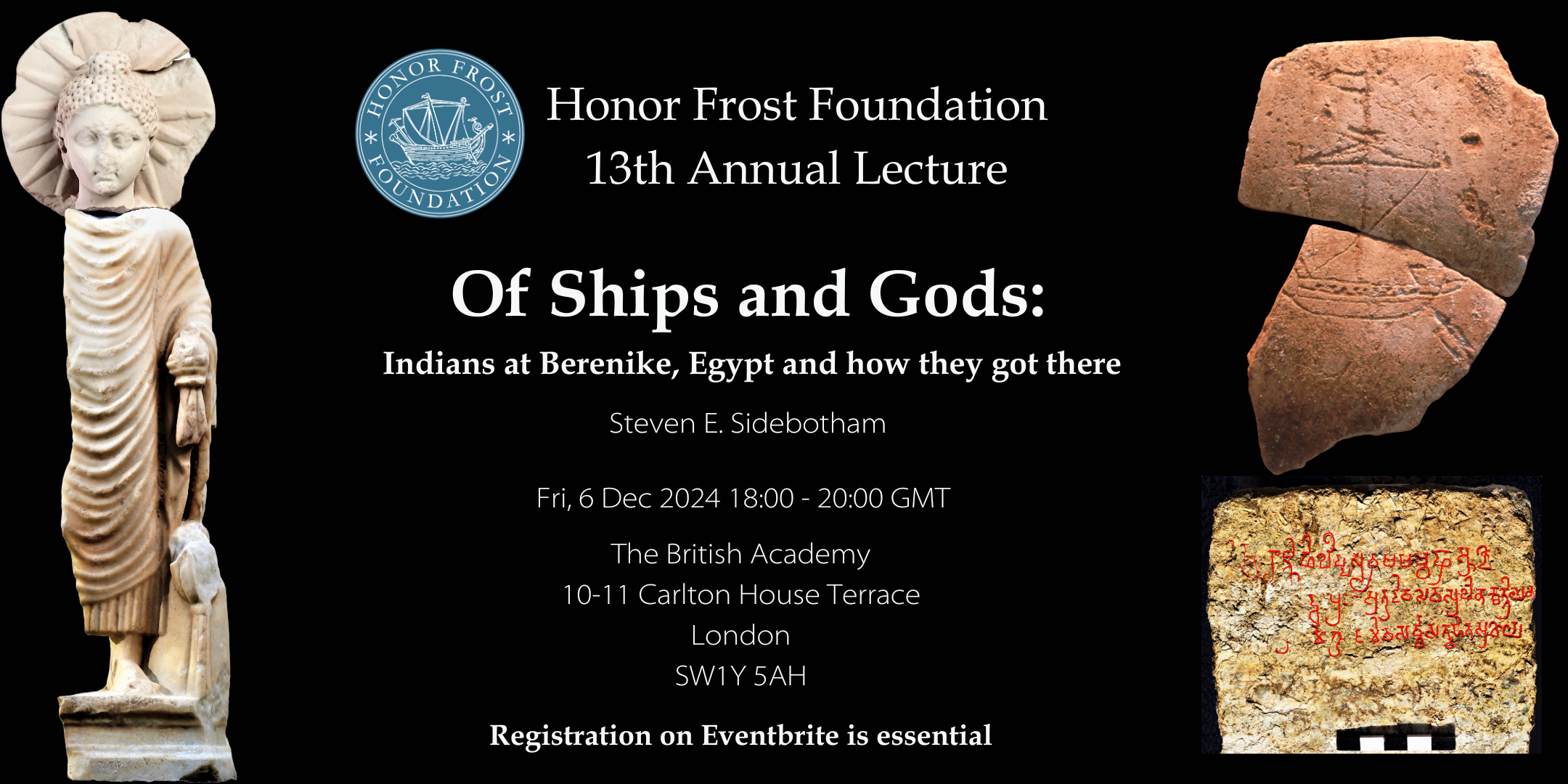Honor Frost Foundation 13th Annual Lecture

Archaeological excavations at Berenike, a Ptolemaic-Roman (third century BC-sixth century AD) port on the Red Sea coast of Egypt, began in 1994 and are on-going. Our fieldwork has unearthed numerous artifacts and ecofacts indicating robust commercial and cultural contacts with many areas of the ancient world.
Initially established to procure African elephants for service in the armies of the Ptolemaic kings of Egypt, and to import aromatics and other commodities, Berenike developed into a prominent nexus concatenating Europe, Africa and Asia in a vast maritime network during the Roman era. Archaeological evidence indicates relations between Berenike and vast areas of the Mediterranean as far west as Morocco and Spain, into West Asia as well as along the Indian Ocean coast of Africa during the first to the later fifth/early sixth centuries AD. Evidence also suggests indirect communication with Indonesia. However, the most intensive and extensive contacts outside the Roman world were with India.
This lecture will focus on the remains of the ships that brought Indians to Berenike for commercial purposes and the extensive evidence for their presence at the emporium.


